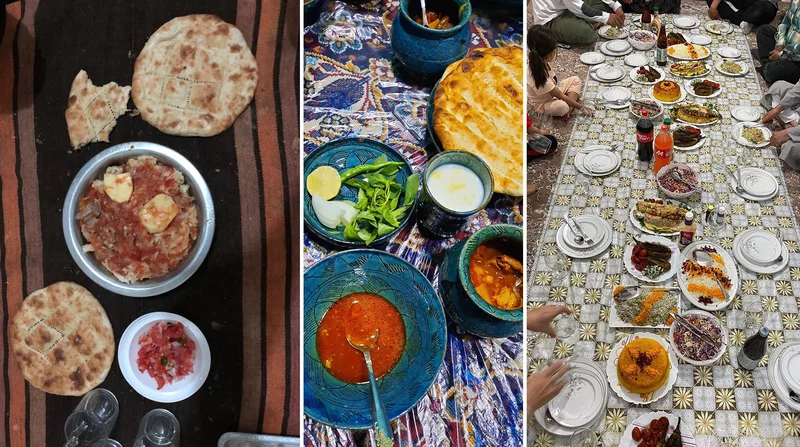In January 2021, Yahya Rasa returned home with pride to Kabul, Afghanistan. A boisterous celebration and an elaborate meal of Afghan delicacies awaited him after completing his master’s degree in business management in Malaysia. “Being the first person in my family to secure a master’s degree from abroad, I was a role model to my siblings and even my friends,” the 25-year-old says.
Over a year and half later, and nearly a year after the August 2021 Taliban takeover of Afghanistan that led to widespread unemployment and poverty, Rasa struggles to find a job and support himself and his new bride.
He’s reminded of all this every time he sits to eat at his family’s traditional dining rug, or dastarkhaan in Persian. Where once was a generous spread of Afghan dishes like qabli pulao, a dish of meat and rice with carrots, raisins and other dry fruits; mantus and aashak, Afghan dumplings stuffed with meat and vegetables, respectively; and fresh seasonal fruits, today “most of our meals [are] very basic, like kidney beans or potatoes or lentils,” Rasa says.
“There have also been times that the only food we had was bread and tea. It feels like [the] dastarkhaan is always empty.”
Rasa is one of nearly 20 million Afghans struggling to put food on the dastarkhaan, according to a May report by the International Rescue Committee. Afghanistan’s economy crashed after the 2021 takeover, exacerbating steep increases in poverty that already had occurred because of COVID-19 and droughts, says Lutfi Rahimi, an economics professor at the American University of Afghanistan. Earthquakes last month killed hundreds and added to the country’s suffering.
The crisis is also affecting Afghans from the middle class who are now plunged into a lower class because the jobs they relied on have evaporated, Rahimi says. Several of these former professionals told NPR that they make no money and survive because of humanitarian aid, charity or by selling possessions like furniture. “Poverty did not happen overnight, but the collapse made the already failing situation even worse,” Rahimi says.
Read full story on NPR
